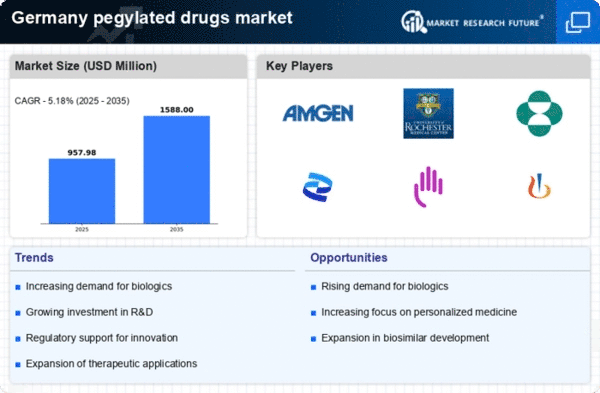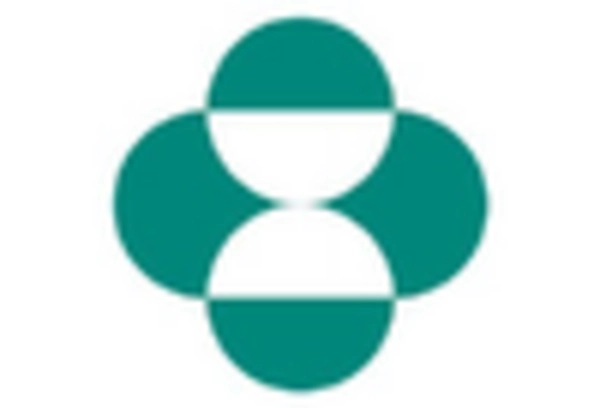Rising Healthcare Expenditure
Germany's increasing healthcare expenditure is a crucial factor propelling the pegylated drugs market. With healthcare spending projected to rise to €500 billion by 2025, there is a growing emphasis on innovative treatments that can improve patient outcomes. Pegylated drugs, known for their efficacy and reduced side effects, are likely to gain traction as healthcare providers seek to optimize treatment protocols. The pegylated drugs market stands to benefit from this trend, as higher healthcare budgets may facilitate broader access to advanced therapies, ultimately enhancing patient care.
Regulatory Support for Biologics
The regulatory environment in Germany is increasingly favorable for the approval and commercialization of biologics, including pegylated drugs. The European Medicines Agency (EMA) has streamlined the approval process for innovative therapies, which may encourage pharmaceutical companies to invest in pegylated drug development. This regulatory support is crucial for the pegylated drugs market, as it reduces time-to-market for new therapies. Additionally, the emphasis on patient safety and efficacy in the approval process ensures that only high-quality products reach the market, potentially increasing consumer confidence and demand.
Increasing Prevalence of Chronic Diseases
The rising incidence of chronic diseases in Germany is a pivotal driver for the pegylated drugs market. Conditions such as cancer, diabetes, and autoimmune disorders necessitate advanced therapeutic options. Pegylated drugs, known for their extended half-life and reduced immunogenicity, are increasingly favored in treatment regimens. According to recent data, chronic diseases account for approximately 70% of all healthcare expenditures in Germany, highlighting the urgent need for effective therapies. The pegylated drugs market is thus positioned to grow as healthcare providers seek innovative solutions to manage these conditions more effectively.
Advancements in Biopharmaceutical Research
Germany's robust biopharmaceutical research landscape significantly influences the pegylated drugs market. The country is home to numerous research institutions and pharmaceutical companies that are actively engaged in developing novel pegylated formulations. Recent investments in biotechnology have led to breakthroughs in drug design and delivery mechanisms. The pegylated drugs market benefits from these advancements, as they enhance the efficacy and safety profiles of existing therapies. Furthermore, the German government has been supportive of biopharmaceutical innovation, providing funding and resources that could potentially accelerate the development of pegylated drugs.
Growing Investment in Personalized Medicine
The shift towards personalized medicine in Germany is a significant driver for the pegylated drugs market. As healthcare moves towards tailored therapies, pegylated drugs offer unique advantages in terms of dosage optimization and patient-specific treatment plans. The market is likely to benefit from increased funding directed towards research and development of personalized therapies. Recent estimates suggest that the personalized medicine market in Germany could reach €20 billion by 2026, indicating a substantial opportunity for pegylated drugs to play a critical role in this evolving landscape.
















